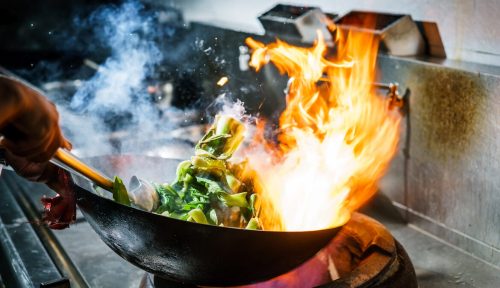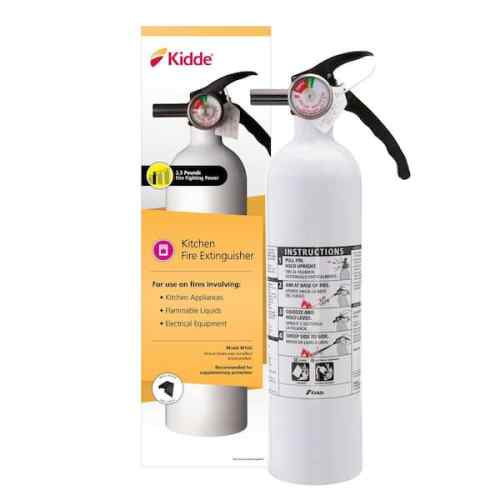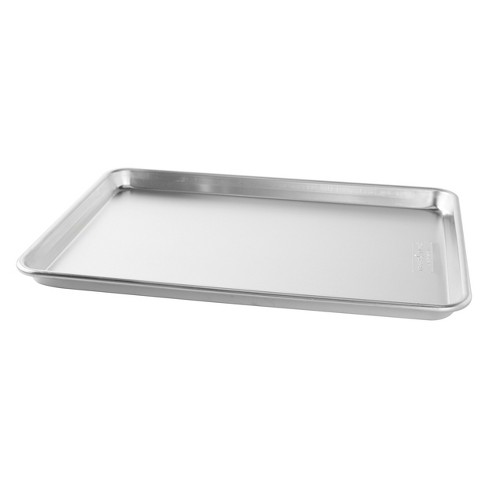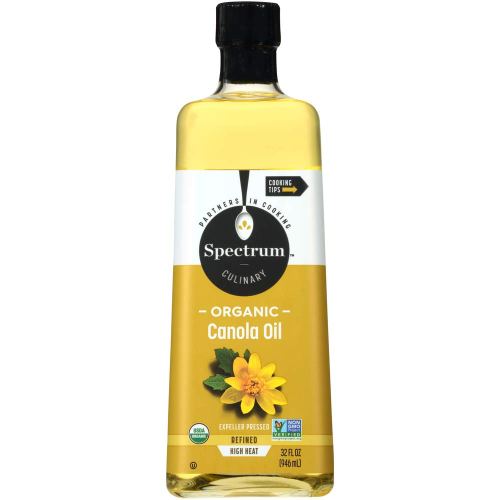Our editors independently select these products. Making a purchase through our links may earn Well+Good a commission
How To Put Out a Grease Fire Quickly and Safely, According to a Professional Chef
Grease fires, while scary, can be put out safely if you act quickly. A chef shares how to stop a grease fire, plus what *not* to do.

This year I’ve made it my goal to spend more time in the kitchen in an attempt to become a better cook. While I was never a stranger to cooking, I’ve long relied on the same simple comfort meals, easy recipes that are your go-to while feeling burnt out. But I’m ready to branch out. What I wasn’t ready for were the risks associated with cooking, such as recognizing the sharpness ceramic knives, how much onions make my eyes burn, and just how quickly grease can start to sizzle in a pan. It was then that I realized it was high time I learned how to put out a grease fire (just in case).
Experts in This Article
Chef John Manion is the head chef at El Che Steakhouse & Bar in Chicago, Illinois.
To learn how to put out a grease fire, Went straight to Chef John Manion of El Che Steakhouse & Bar in Chicago. After all, who knows the subject better than a chef who works with grease on a regular basis?
What *Not* To Do With a Grease Fire
Let’s address a few misconceptions. While most fires can be dulled and/or extinguished with water, grease fires cannot.
“Do not use water,” emphasizes Manion. “It will only make matters worse, as it creates steam that will most certainly burn you and splatter oil everywhere.”
Additionally, while many home cooking blogs suggest smothering a fire with flour, Manion advises against it. “Flour, sugar, and baking powder will most likely catch fire and make matters worse,” he warns.
How To Put Out a Grease Fire
Now, what you should do if a grease fire occurs in your kitchen. For starters, you’ll want to know where your fire extinguisher is. “Your kitchen extinguisher should be specifically for kitchens as the chemicals within will have been specifically designed for grease fires,” Manion says. (The Kidde Kitchen Fire Extinguisher with Easy Mount Bracket is a popular option.) Using your extinguisher should be a last resort, says Manion.

Kidde Kitchen Fire Extinguisher with Easy Mount Bracket — $25.00
Before reaching for your fire extinguisher to put out a grease fire (whether it’s on your stovetop, in your oven, or on the grill), Manion says to grab a large clean sheet pan (like the Nordic Ware Naturals Baker’s Half Sheet). “The strategy here is to deprive the fire of the oxygen it needs to live and spread,” he says. “A clean sheet pan or lid quickly covering the fire is the best way to smother it.”

Nordic Ware Naturals Baker's Half Sheet — $13.00
Another option is to use approved dry goods. “Salt and baking soda—not baking powder—in large quantities, dumped on the fire will also work,” says Manion.
Above all, when trying to put out a grease fire, it’s important to be cool, calm, and collected. The more you panic, the more likely you’ll be to make a wrong move that could make the fire worse.
Of course, if the fire is absolutely unmanageable to the point where it’s unsafe, it’s imperative that you exit your home and call 911 immediately.
How To Prevent Grease Fires
If the idea of encountering a grease fire terrifies you, your best bet is to adopt kitchen practices to prevent them in the first place. “Grease fires are primarily caused by cooking oil overheating to the point where it combusts,” Manion says. As such, he says that the best way to avoid grease fires is to use vegetable or canola oil (like Spectrum Essentials Organic Canola Oil) when cooking. “These have high smoke points and will take longer to combust than other oils.”

Spectrum Essentials Organic Canola Oil — $30.00
Additionally, he says to pay attention to what you’re cooking. “If your oil is smoking, turn it down or take it off the flame,” he says.
Lastly, make sure that you’re working in a clean, clear cooking area. In the event that your pan does catch fire, Manion says the last thing you want is for the grease accumulated on the range to ignite cookbooks, paper towels, and other flammable objects nearby.
Sign up for the Well+Good SHOP Newsletter
Get exclusive deals on wellness, beauty, fitness, and food products that have been hand-picked by our editors.
Got it, you've been added to our email list.







